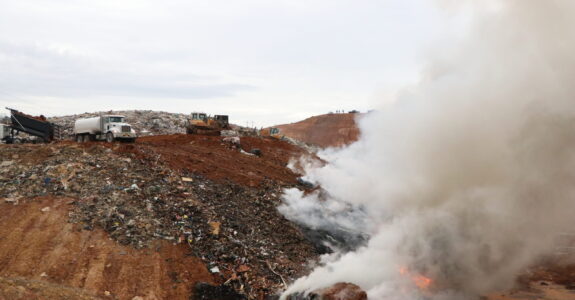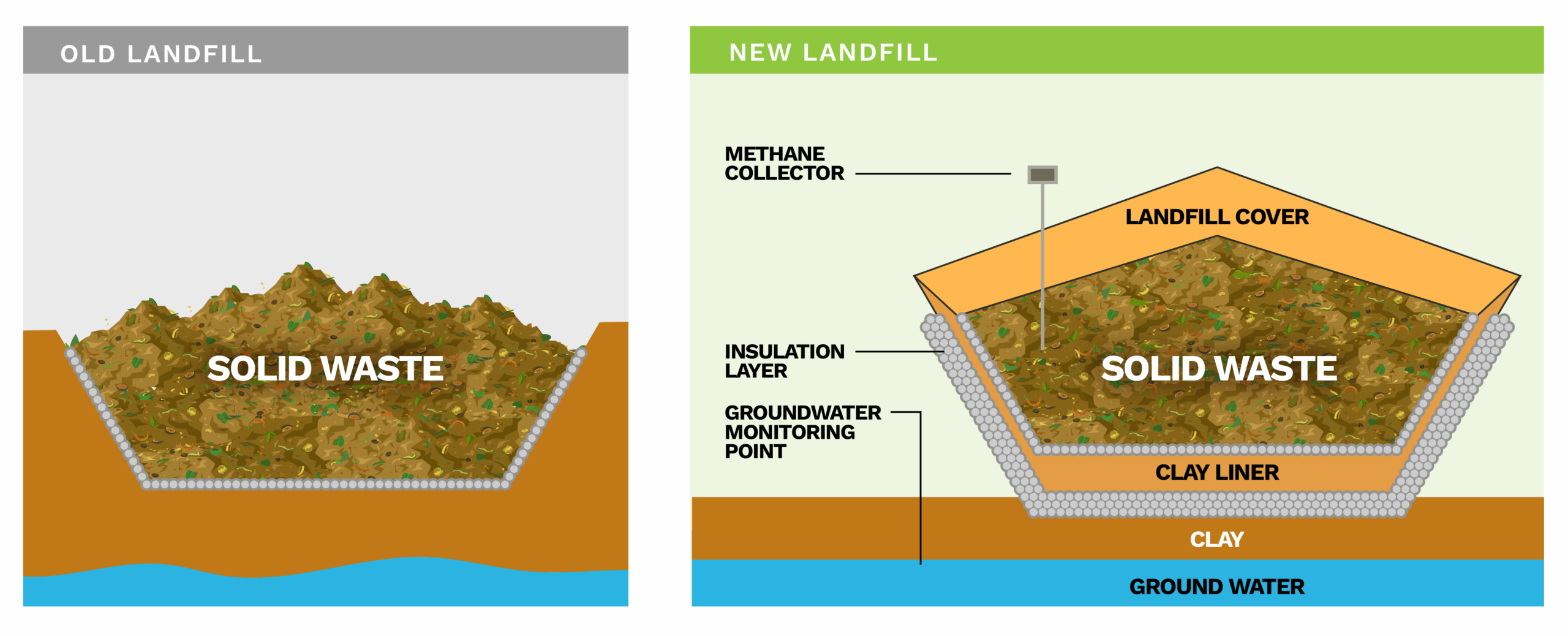
California’s AB 28: What Landfill Operators Need to Know About the Proposed Elevated Temperature Rule
July 28, 2025
By: Kyle Lapic
Landfill operators across California are facing a new regulatory challenge that could significantly reshape how elevated landfill gas temperatures are monitored and managed. With the introduction of Assembly Bill 28 (2025), the state is proposing a tiered compliance framework, where subsurface heat events have raised environmental and public health concerns.
This proposed legislation introduces strict thresholds, mandatory reporting, and steep penalties for non-compliance—up to $1 million per week. For landfill operators, the stakes are high, and the timeline for action could be short.
In this blog, we’ll break down the key components of AB 28, what it means for your operations, and how Montrose can help you stay ahead of compliance requirements.
The Challenge: Elevated Temperatures and Public Scrutiny
The proposed rule is a direct response to growing concerns over subsurface elevated temperature (SET) events—conditions where landfill gas wellheads exceed safe operating temperatures. These events can signal chemical reactions or smoldering fires underground, posing risks to air quality, infrastructure, and community safety. AB 28 aims to create a standardized, enforceable response to these events, with a focus on transparency, accountability, and rapid mitigation.

What AB 28 Proposes: A Tiered Compliance Framework
Under AB 28, landfill operators would be required to take escalating actions based on the severity and duration of elevated temperatures:
- 131°F–145°F (for 60+ days):
- Site is flagged as a Subsurface Elevated Temperature Event (SET).
- Operators must develop a Corrective Action Plan in coordination with local enforcement and CalRecycle.
- Monthly gas temperature data must be posted publicly.
- 146°F+ (for 60+ days):
- Triggers formation of a multi-agency coordination group (including CalEPA) to investigate and advise on mitigation.
- 162°F+ (for 60+ days):
- Escalates to a Corrective Action Order.
- Authorizes penalties up to $1 million per week while conditions persist.
Additionally, the bill proposes the creation of a Landfill Subsurface Fire Mitigation Account, funded by fines, to support impacted communities.
Legislative Status: What’s Next?
As of mid-2025, AB 28 has passed the California State Assembly and is currently under review by the Senate, where it awaits a hearing in the Appropriations Committee. While final passage is not guaranteed, the bill has gained significant momentum and is widely expected to advance, depending on end-of-session dynamics.
Operators should begin preparing now, as the bill could move quickly to final approval and implementation if cleared by the Senate.

How to Prepare: Compliance Starts with Monitoring
The key to staying ahead of AB 28 lies in early detection and transparent reporting. Montrose offers a full suite of services to support landfill operators, including:
- Continuous landfill gas monitoring
- Data management and public reporting tools
- Corrective action planning and regulatory coordination
- On-call technical support during elevated temperature events
Our experience with complex sites and regulatory frameworks positions us as a trusted partner for navigating this evolving landscape.
Be Proactive, Not Reactive
AB 28 signals a shift toward more aggressive oversight of landfill gas management in California. For operators, the message is clear: prepare now or risk costly penalties later.
Montrose is here to help you build a proactive compliance strategy that protects your site, your community, and your bottom line.
 Kyle Lapic
Kyle Lapic
Senior Consultant
Kyle leads environmental compliance and project management initiatives across the Orlando, Florida area. Their expertise covers hazardous waste strategy, SPCC and SWPPP plan development, and facility audits aligned with RCRA and DOT standards. Kyle works closely with regulatory agencies to resolve compliance matters, support permitting, and guide clients through complex audits. They also develop EHS policies, conduct safety trainings, and implement health and safety plans that enhance operational integrity. Known for blending technical acumen with business development, Kyle delivers sustainable solutions that balance regulatory responsibility with client performance.

